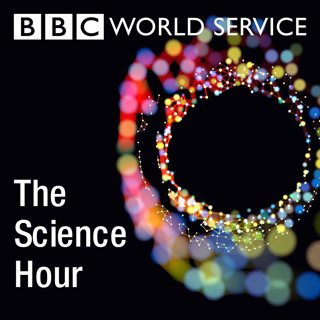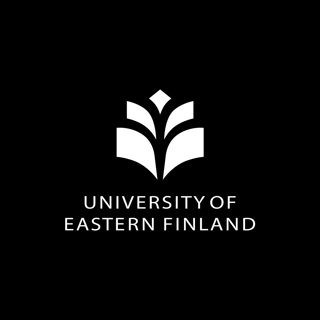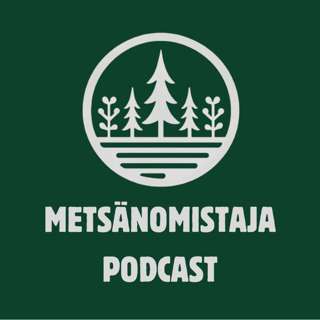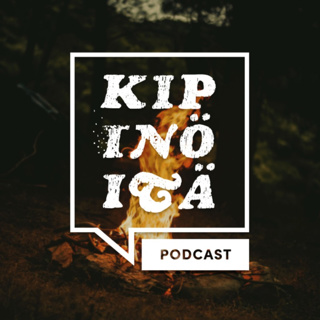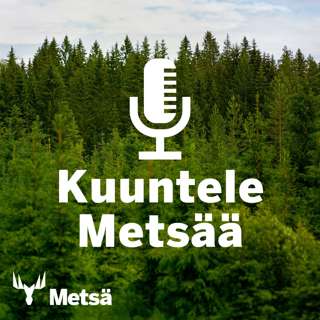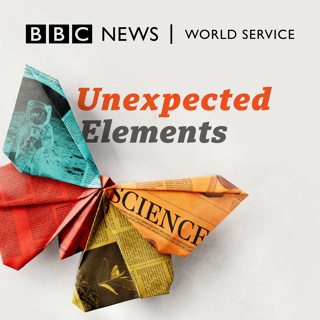
The world's longest treasure hunt
After 31 years, a mammoth treasure hunt consisting of solving eleven cryptic clues has finally concluded. A replica of the final prize – a golden owl – was dug up in France, leaving fellow treasure hunters both disappointed and relieved. Inspired by this pursuit, the Unexpected Elements team unearth some of science’s hidden gems. From the potential resurrection of ancient healing tree balm to the world’s rarest stone, and even how cats could help solve crimes. The team are also joined by astrobiologist Nathalie Cabrol to speak about the potential treasures hiding on another moon in our solar system. Along the way, our panel have their own clues to crack as they take on a mini hunt of their own to find the location of a scientific golden nugget. Plus, we solve the mystery of a moth which ended up 4000 miles from home, hear what our brains see when we can’t and talk about returning treasures to where they came from. Presenter: Marnie Chesterton Panel: Chhavi Sachdev + Tristan Ahtone Producer: Julia Ravey Production team: Harrison Lewis, Jonathan Blackwell + Tom Taylor Studio Engineer: Gavin Wong
11 Loka 202449min

Science to make you smile
Did you know the iconic yellow smiley face was first designed in 1963? However, its creator, Harvey Ball, soon worried that the symbol had become over-commercialised. To counter this, he introduced World Smile Day in 1999, celebrated on the first Friday of October, as a way to encourage acts of kindness and spread smiles.In the spirit of making you smile, the Unexpected Elements team has gathered science stories that bring them joy—each with a twist, of course.Children across cultures have invented secret languages to confuse their parents—and there's science behind it. The human face can produce 19 different types of smiles. And let’s not forget the Brazilian scientist who not only pioneered species classification but also became a key figure in the country's suffragette movement.Meanwhile, Marnie Chesterton introduces us to the ever-cheerful Professor Andrea Sella from University College London, whose humour never fails to brighten her day. Together, they explore the role of humour in science and its importance in engaging both audiences and students.Plus, we’ll dive into the science of vocal fingerprints, meet a man who physically couldn’t smile, and hear about a global update to cyber security regulations that just might make you grin.Happy Friday!Presenters: Marnie Chesterton with Andrada Fiscutean and Camilla Mota Producers: Harrison Lewis with Jonathan Blackwell, Elizabeth Barsotti, and Anna Charalambou.
4 Loka 202449min

All things Oregon!
Join Marnie Chesterton and her panel of science journalists Chhavi Sachdev and Jes Burns, on their Oregon science mission. We investigate building materials of the future, from creative cement alternatives to buildings made of wood, and hear from forest scientist Sarah Jovan about how one humble plant has made huge changes to Portland's air quality. Plus, we make waves with a new wave energy testing facility, uncover the benefits (or costs) of bamboo alternatives and our panellist fight against the clock to pitch what they think should take the crown of Oregon's Coolest Science. And, we hear from our studio audience about how they experience the world and one of them even volunteers to do the fact file. Recorded at Oregon Public Broadcasting (OPB) studios in Portland Oregon. Presenter: Marnie Chesterton Producer: Julia Ravey Production team: Alex Mansfield and Cathy Edwards Studio engineer: Kate Barker and Darren Wardrobe
27 Syys 202449min

Shiny: Why we are dazzled by new sparkly things
This week, Apple releases the new iPhone 16. It's new, it's shiny, and tech-nerds will be queueing round the block for a chance to snap it up. But why? We look at the science behind why we get so dazzled with new and shiny things.We hear about the psychology behind our magpie tendencies, and find out it might all be connected to one of our deepest evolutionary drives: for clean, fresh, sparkling water.And we find out what the shiniest thing in the natural world is. An extraordinary blue berry with some mesmerising visual qualities.We find out about diamonds made from your dead pets. And, we dissect the science behind the first flush of love. Why do we get so obsessed with a new partner? And why doesn't the feeling last?Presenter: Caroline Steel, with Kai Kupferschmidt and Phyllis Mwatee Producer: Harrison Lewis, with Emily Knight, Noa Dowling and Elizabeth Barsotti Sound engineer: Searle Whittney
20 Syys 202449min

Ngā Wai Hono i te Pō: The new Māori Kuini
Ngā Wai Hono i te Pō ascends the Māori throne as the new Kuini (Queen), much to the joy of her people, heralding a new age of prominence for the Kiingitanga movement. We ask whether the new queen may have a biological advantage making her a better fit for leadership, whilst searching for examples of matriarchy in the animal kingdom and analogous human societies.As is customary, Ngā Wai Hono i te Pō was crowned on the same day as her father’s funeral, thrust into a leadership role during a time of profound grief. We hear from Prof Lucy Selman, expert in palliative and end-of-life care from the University of Bristol, and founder of the Good Grief Festival. She speaks about the physical and emotional manifestations of grief and how it can be processed and overcome, even in the face of immense responsibility.We remember the legendary voice of the late James Earl Jones, who played the intergalactic monarch, Darth Vader, as Marnie unpicks the science of stuttering.Unravel a massive jigsaw puzzle, uncover a hidden secret behind Queen’s hit song Don’t Stop Me Now, and delve into the fascinating realm of neuroscience and much more on Unexpected Elements.
13 Syys 202449min

Thrillseekers
Here on Unexpected Elements, we've been glued to the drama of the Paralympic games in Paris. But it's not just the thrill of the competition that's got us hooked, we've also become obsessed with some of the high-octane training regimes undertaken by the athletes.Take American 'Armless Archer' Matt Stutzman, who shoots arrows through the windows of his own house and car to recreate the high pressure of the Olympic stadium. He's chasing a thrill, and so are we!We hear about the research on one extraordinary woman who had a medical condition which caused her to have no fear.And we follow the fate of an extraordinary marine creature, who detaches his own arm in his quest for a mate.We hear about why humans love to be scared - as long as it's all in good fun.And we hear about the space debris falling to earth, and the thrilling quest of a plane full of scientists who want to watch it fall.That and loads more unexpected elements in this week's show.Presenter: Marnie Chesterton, with Tristan Ahtone and Affelia Wibisono Producer: Emily Knight, with Harrison Lewis, Dan Welsh and Noa Dowling Sound engineer: Gwynfor Jones
6 Syys 202449min

The world's worst tourist
Following anti-tourism protests across popular Spanish cities and towns, we are looking for the world's most unwelcome visitor. Our panellists (and producers) are pitching their terrible tourists to see who really is the worst of them all. Some of our contenders include... The wild boars who's unanticipated vacay to Rome has gone on for so long and caused so much carnage that researchers are putting them on birth control.The microbes potentially hitching a ride to the moon via space probes and astronauts' pooThe multi-destination parasite who wreaks havoc as it interrails through snails (castrating them on the way), frogs (making them spout multiple limbs) and birds.But there are some instances when tourists can be a good thing - and this is especially the case in the human body when we want to grow a baby. How is in that we are able to protect what should be an 'unwelcome visitor' from a hyperalert, hostile immune system? Our expert Edward Chuong explains. Plus, we uncover the DNA origins of the world's most popular coffee bean, hear the freeloading activities of the male angular fish, and read out a selection of your wonderful emails. Presenter: Caroline Steel Panellists: Phillys Mwatee & Christine Yohannes Producer: Julia Ravey Production team: Emily Knight, Noa Dowling Studio manager: Emma Harth
30 Elo 202449min

A sticky situation
The US astronauts Butch Wilmore and Suni Williams are currently stranded on the ISS. They arrived on the Boeing Starliner, which was meant to bring them home after eight days. Unfortunately, it has run into tech issues, meaning that the astronauts may be stuck up there for up to eight months. We started to ponder, what could an extended period of being stuck in space do to your body? Next we look to the world of psychedelics research, which has currently got itself a little bit stuck. We also find out more about the Haraldskær Woman, discovered preserved in a Danish bog in the 1800s. Mads Ravn, head of archaeology, research and collections at the Vejle Museums in Denmark, reveals the stories behind the bog bodies and explains how they ended up stuck in the mud. And staying with the theme of stickiness, we find out what Neanderthals used as glue. That, plus many more Unexpected Elements. Presenter: Marnie Chesterton, with Camilla Mota and Kai Kupferschmidt Producer: Harrison Lewis, with Alice Lipscombe-Southwell and Noa Dowling. Sound engineer: Mike Mallen
23 Elo 202449min
